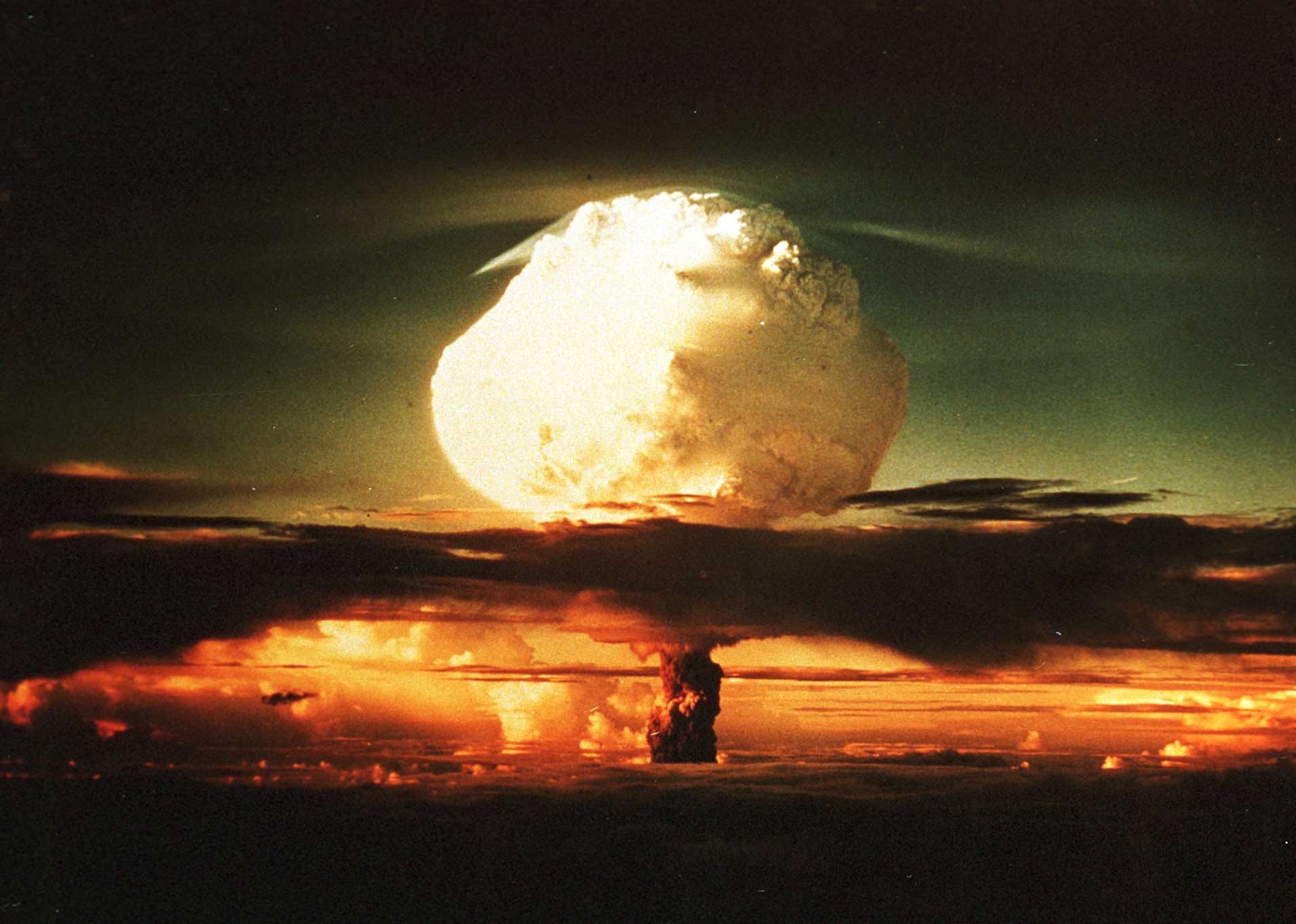Alex Karp: We Need a New Manhattan Project Our technology industry is capable of building a weapon that could ensure peace. But why court controversy when you can build another app?
“J. Robert Oppenheimer reportedly wondered aloud if a weapon this destructive might somehow contribute to an enduring peace,” writes Alexander C. Karp and Nicholas W. Zamiska in their new book. (Joe Raedle via Getty Images)
“The only thing that will ever prevent nations from beginning war is terror.” So wrote Alfred Nobel, who gave his name to the world’s most famous peace prize—but who also invented dynamite. This quote appears in a brand-new book co-authored by Alexander C. Karp and Nicholas W. Zamiska, of Palantir Technologies, which we’re excerpting today. “The Technological Republic,” published this week, argues that the future of the West depends on America having the best weapons in the world—and it could not be more timely. In the last seven days, President Donald Trump has made extraordinary concessions to Russia’s authoritarian regime. His defense secretary, Pete Hegseth, has called for $50 billion in budget cuts to the U.S. military. And Hamas flagrantly violated the already fragile ceasefire deal in Gaza. America’s enemies are strong. Our allies are vulnerable. What we need, argues Alex in the following essay, is a new Manhattan Project: a collaboration between our government and our technology sector that will keep America, and the world, safe. Why isn’t this happening already? Read on to find out. —The Editors On July 16, 1945, in the darkness before dawn, a group of scientists and government officials gathered at a desolate stretch of sand in the New Mexico desert to witness humanity’s first test of a nuclear weapon. It was a pivotal moment in the timeline of the Manhattan Project, the World War II government program in which scientists collaborated with the U.S. military to develop the first atomic bomb before Nazi Germany. That morning, the nuclear physicist J. Robert Oppenheimer reportedly wondered aloud if a weapon this destructive might somehow contribute to an enduring peace—recalling the hope of Swedish industrialist Alfred Nobel that dynamite, which Nobel had invented, “would end wars.” It has been nearly 80 years since the first test of an atomic bomb, and nuclear weapons have been used in war only twice, at Hiroshima and Nagasaki in Japan. The horror of that day, August 6, 1945, has grown distant and faint, almost abstract, for many. Yet too many have also forgotten, or perhaps take for granted, that nearly a century of some version of peace has prevailed in the world without a great power military conflict. For this period of relative tranquility, it would be unreasonable to give all of the credit to a single weapon. The supremacy of American military power over the past century has undoubtedly helped guard the current, albeit fragile, peace. A commitment to the maintenance of such supremacy, however, has become increasingly unfashionable in the West. And deterrence, as a doctrine, is at risk of losing its moral appeal. This leaves us in grave danger. The United States and its allies should, without delay, commit to launching a new Manhattan Project...
Become a paid subscriber Get access to our comments section, special columns like TGIF and Things Worth Remembering, tickets in advance to our live events, and more. UPGRADE TODAY |


